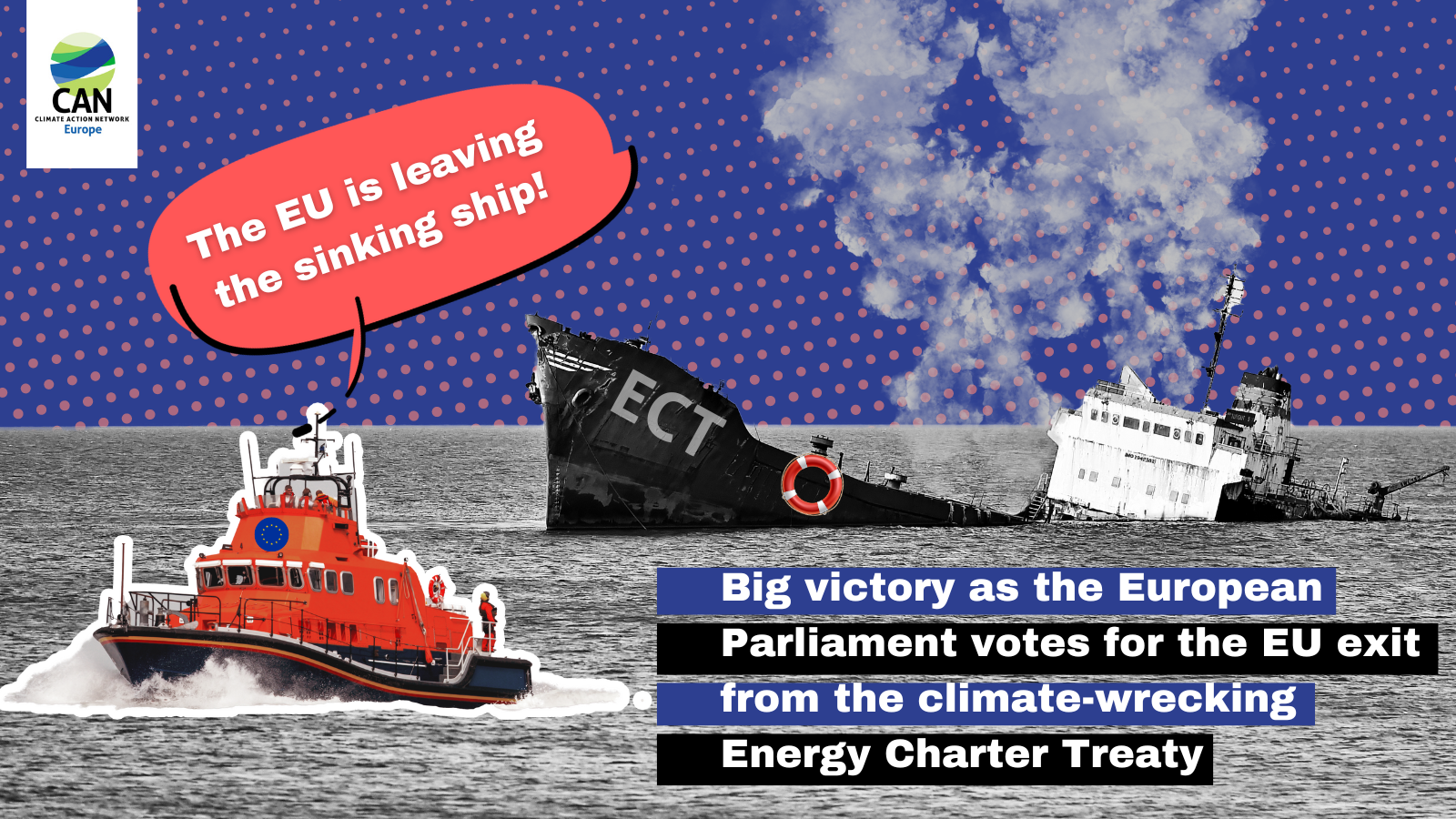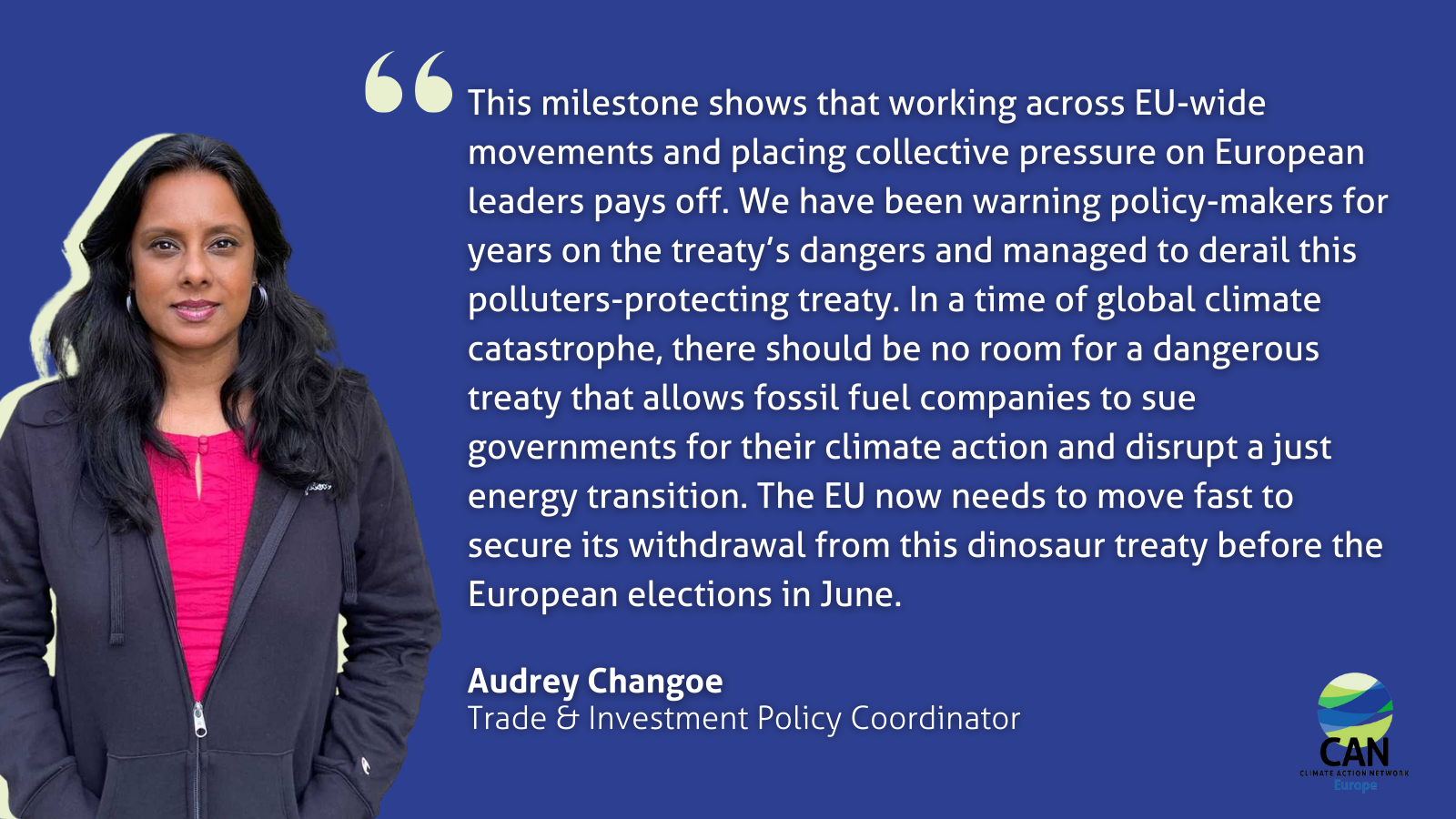Brussels, 30 May 2024 – The Council of the EU today adopted a historic decision to withdraw the European Union from the Energy Charter Treaty (ECT), an international investment treaty from the 1990s increasingly used by the fossil fuel industry to sue governments over their climate and energy policies.
Audrey Changoe, Trade and Investment Policy Coordinator at Climate Action Network (CAN) Europe said:
“This is a historic moment and a significant victory for climate justice campaigners across Europe. The EU is finally abandoning this sinking ship of a treaty that protects polluters and allows fossil fuel companies to claim billions from taxpayers. Amidst a global climate crisis, such climate-wrecking agreements have no place.”
Ahead of the EU, 12 European countries have left the treaty already, including Spain, France, Italy, Germany, and the UK. CAN Europe has campaigned relentlessly with civil society organisations and climate activists across Europe, exposing the dangers of the controversial treaty and calling the EU and European countries to withdraw from it. In 2021, CAN Europe’s petition against the ECT gathered over 1 million signatures from citizens across the EU.
Today’s Council decision followed after the European Parliament massively voted in favour of exiting the Energy Charter Treaty in April this year.
The cornerstone of the Energy Charter Treaty has been the Investor-State Dispute Settlement (ISDS) mechanism that, even without the ECT, continues to exist in many other investment treaties. ISDS allows companies to sue governments through private arbitration courts if they pass or enforce laws that affect the companies’ investments.
Changoe continued:
“Right now, our pressure is on the remaining EU countries that have yet to exit the ECT. They have a unique opportunity to abandon this sinking ship, dismantle the power of the fossil industry and prioritise future generations over fossil fuel profits. And next, we will take on the undemocratic ISDS system which poses a serious threat to a just global energy transition.”
ENDS
Notes to the Editor:
Some case examples of companies using the Energy Charter Treaty:
- In 2021, German coal firms RWE and Uniper sought €2.4bn in damages from the Dutch government over its 2030 coal phase-out deadline.
- In 2022, The British oil company Rockhopper was awarded €190 million plus interest under the Energy Charter Treaty after Italy banned offshore drilling, following a decade of struggle by Italian coastal communities who fought against the oil production on their coasts.
- In 2023, the oil company Klesch Group Holdings Limited sued the EU, Germany and Denmark for at least €95 million over windfall taxes under the Energy Charter Treaty. The lawsuit by the oil company targeted Europe’s efforts to cushion the economic impact of high energy prices.
For more information and media requests:
Jani Savolainen, Communications Coordinator, jani.savolainen@caneurope.org
Interviews available in EN, FR, ES, NL, PT, DE





